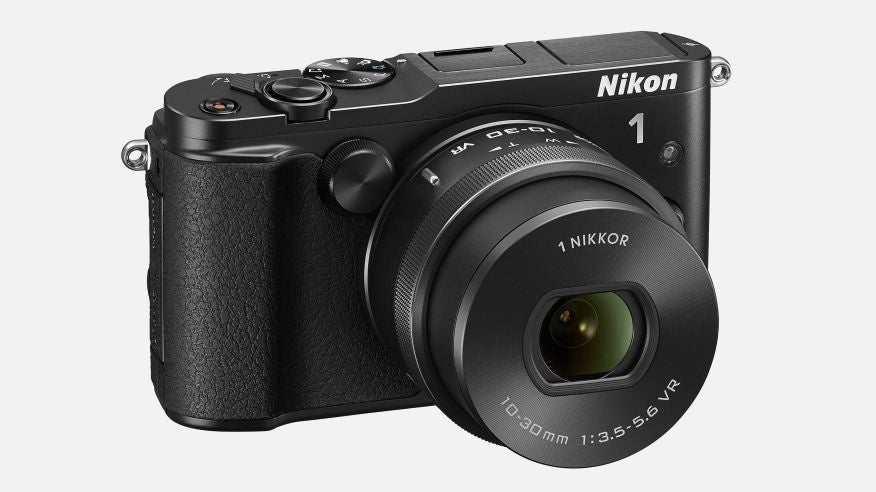Nikon 1 V3 premium compact system camera announced

The Nikon 1 V3 is a new addition to the company’s 1 series of mirrorless interchangeable lens cameras, this time aimed at the high-end photographer.
Nikon appears to have gone back to the drawing board following the Nikon 1 V2, replacing that camera’s fixed elements with a new modular design. Both the electronic viewfinder and grip are now optional accessories, leaving an extremely stripped back Nikon 1 V3 body by default.
Still, while it retains the series’s 1-inch image sensor, it appears to be a much-improved example. We’re talking a brand new 18.4-megapixel chip, which is up significantly from the 14.2-megapixel V2.
Also new is the V3’s hybrid autofocus system, which now boasts 171 autofocus points. Nikon claims that 105 of those are phase-detection points, which basically means they can lock on at “breakneck speed.”
It can also shoot at 20fps with continuous autofocus, or 60fps with the autofocus fixed.
Around back you get a sharp 3-inch 1037k dot LCD touchscreen display, which is tiltable. Wi-Fi connectivity is also included, as you might expect.
The Nikon 1 V3 also includes an iPhone 5S-like slo-mo video feature. This involves shooting video at 720p and 120fps, enabling slow motion playback that’s as smooth as standard speed footage. Unfortunately, here it’s only available for 12 second captures – which translates to three seconds on playback.
There’s no UK pricing for the Nikon 1 V3 just yet, but in the US you’ll be able to bike up the V3 plus the attachable grip and viewfinder and a 10-30mm power zoom lens for a whopping $1,199.95. That’s not cheap.
Read More: Best cameras 2014


